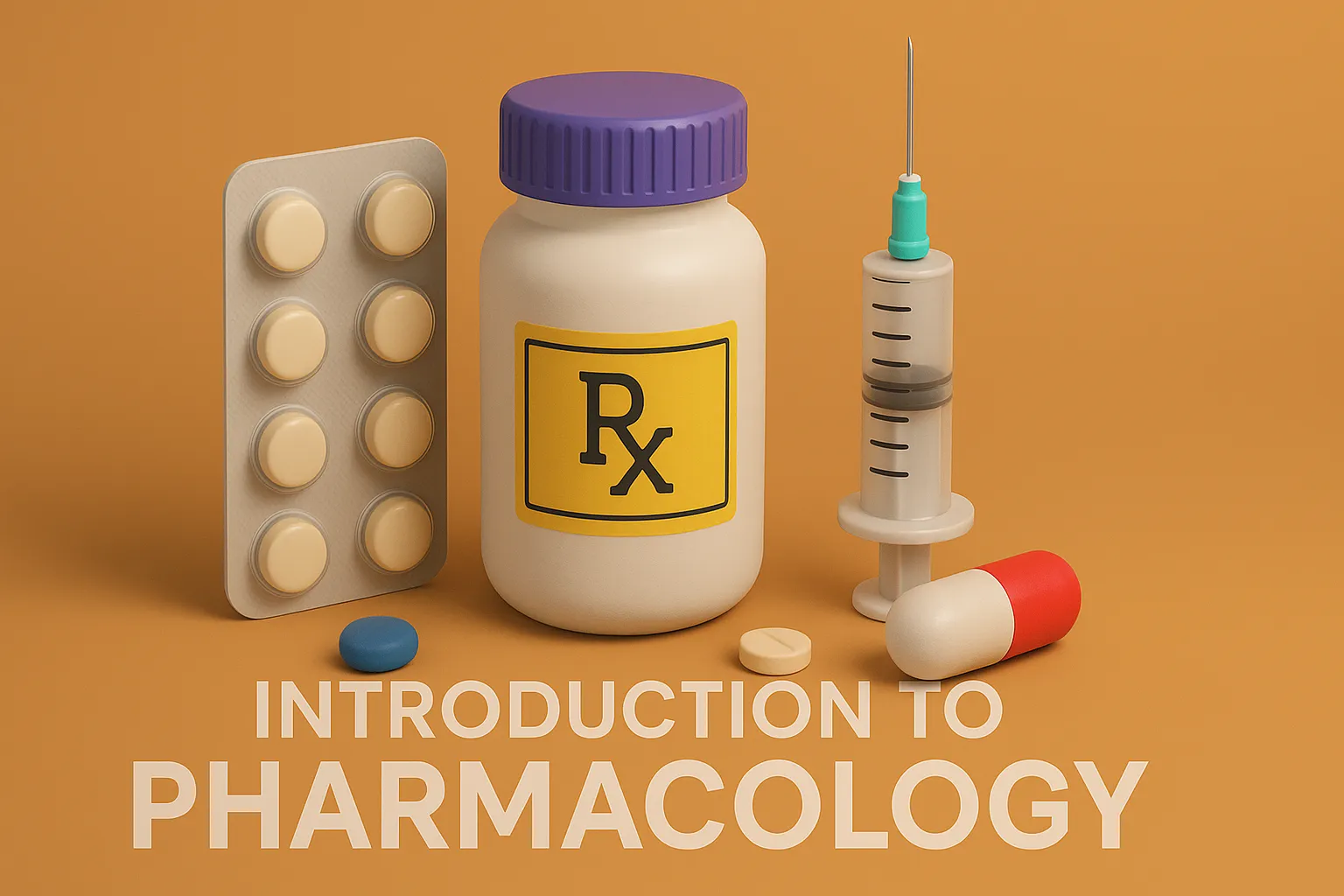Introduction to Pharmacology is the study of drugs, their sources, properties, mechanisms, therapeutic uses, and effects on living systems.
Definition of Pharmacology
- Pharmacology is the branch of science that deals with the study of drugs, including their origin, nature, properties, actions, and effects on living organisms.
- It is primarily divided into two major branches:
- Pharmacodynamics – What the drug does to the body (mechanism of action, therapeutic effect).
- Pharmacokinetics – What the body does to the drug (absorption, distribution, metabolism, excretion).
- Pharmacology helps to understand the interaction between drugs and biological systems, guiding therapeutic applications and safety considerations.
Pharmacokinetics (PK)
- Pharmacokinetics is the study of what the body does to the drug.
- It involves the movement of drugs through the body and is typically divided into four key processes:
- Absorption
- Distribution
- Metabolism (Biotransformation)
- Excretion
- These processes determine the onset, intensity, and duration of a drug’s action.
Historical Landmarks in Pharmacology
- Pharmacology has evolved from traditional herbal remedies to a highly scientific discipline.
Here are important historical milestones:
- Ancient Era: Early use of medicinal plants and minerals in civilizations such as Egypt, India (Ayurveda), China (Traditional Chinese Medicine), and Greece.
- Dioscorides (1st Century): Authored De Materia Medica, cataloging medicinal substances from nature.
- Paracelsus (16th Century): Introduced the principle “the dose makes the poison,” emphasizing dose-response relationships.
- 18th–19th Century: Isolation of active principles like morphine (from opium), quinine (from cinchona bark), and digitalis (from foxglove).
- 20th Century:
- Discovery of antibiotics (e.g., penicillin by Alexander Fleming in 1928).
- Development of vaccines, anesthetics, and chemotherapeutic agents.
- Establishment of pharmacology as an experimental and clinical science.
- Modern Era: Introduction of biotechnology, genetic engineering, targeted therapy, and pharmacogenomics.
Scope of Pharmacology
Pharmacology intersects with multiple disciplines:
- Pharmacognosy: Study of drugs derived from natural sources (plants, animals, minerals).
- Pharmaceutics: Formulation and dispensing of drugs.
- Pharmacokinetics and Pharmacodynamics: Essential sub-disciplines focusing on how the body handles drugs and how drugs act on the body.
- Toxicology: Study of harmful effects of chemicals on living organisms.
- Clinical Pharmacology: Application of pharmacological principles in the clinical setting.
- Pharmacovigilance: Monitoring and evaluating drug safety post-marketing.
The ultimate scope is to improve the use of drugs to optimize therapeutic outcomes and minimize adverse effects.
Importance:
- Development of safer and more effective drugs.
- Rational and evidence-based drug therapy.
- Regulation and monitoring of drug use.
Click Here to Watch the Best Pharma Videos

